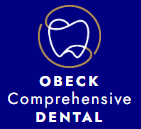To all of those who read this newsletter, thank you. I hope you find this monthly newsletter educational and interesting; perhaps it may even answer some questions about oral health that you may have been pondering. If you have any dental questions or topics you would like me to write about, please let me know! This newsletter will be a “deep dive” on preventing tooth decay.
Most tooth decay is a direct result of the effect of acid on your teeth. The bacteria in our mouths consume sugar from foods we eat and produce acid as a byproduct. This acid is what wears down enamel and dentin and allows the bacteria to penetrate and spread inside our teeth like termites in wood. The more acid you have in your mouth the lower the pH becomes and the more likely you are to have decay. Decay can begin at any time of your life when the conditions are right. Here are some tips that will reduce the amount of acid in your mouth, the chance for decay and the need for repair:
- Limit or eliminate all sources of sugar. Sugar comes in many forms such as table sugar, sodas (which are very acidic as well), natural sugar found in fruit (dried fruit is worse), honey, maple syrup, high fructose corn syrup. Sticky sugar is worst because it adheres to your teeth. Sugar is added to processed foods and is often hidden. Read labels and look for it. There are 4 grams of sugar in 1 teaspoon which equates to 16 calories. Limit total sugar intake to• 5 to 10% of your total daily calories.
- Be very aware of the acid content in the foods you eat and the beverages you drink. Adding acid to your mouth from your diet will create an environment that will promote decay. Read labels and look for any acid such as citric, phosphoric, malic, tartaric, acetic, tannic, fumaric, and lactic, to name a few. These can be found in citric juices, wines, tea, coffee, beer, sport drinks, vinegar, and enhanced water beverages. If you consume these, remember to swish with plain water to dilute the negative effects on your teeth.
- Medical conditions that lead to vomiting or acid reflux are devastating to teeth in general and promote decay by allowing the acidity of your stomach to affect the acidity of your mouth. See your medical doctor for treatment and follow the advice prescribed. A dry mouth will also create an acid environment and lead to decay. This is because our saliva, which has a basic pH, cannot neutralize the acids present in our mouth. Some medications such as antidepressants and blood pressure medications cause dry mouth.
- Maintain excellent oral hygiene by brushing your teeth with a soft or ultra-soft bristled brush and fluoride tooth paste minimally two times per day for two minutes, about twenty minutes after meals. We recommend a powered brush with a timer and a pressure sensor to make sure you are not brushing too hard. Flossing once daily before bed time is advised. Use products designed to reduce the acid in your mouth; we recommend Arm & Hammer Dental Care toothpaste and Crest Denisfy with stannous fluoride for all our patients unless a more aggressive approach is required. Some patients should use a prescription strength fluoride toothpaste.
- Daily use of mints or gum sweetened with only Xylitol is highly recommended. Xylitol is a safe sugar substitute which cannot be broken down by bacteria into acid. New research has shown that xylitol can actually kill harmful bacteria in the mouth and aid in remineralization of teeth. Do not let your dog eat xylitol because it is toxic to them.
- Consider an oral probiotic if you have gum disease or history of cavities. Much like yogurt or sauerkraut for our gut health, oral probiotics flood our mouths with “good guy bacteria” which outcompete and kill the “bad guy bacteria” that cause destruction to our teeth and gums. We recommend ProBiora as it is the most well studied oral probiotic and have seen it cause improvement for both gum disease and tooth decay in our patients taking it. Do not use mouthwash if you use an oral probiotic because it will kill the “good guy bacteria” too.
Being aware of the factors that influence tooth decay and taking steps to reduce your risk of developing decay will go a long way toward preserving your teeth and your restorations. If you have any questions or concerns please do not hesitate to reach out to me or Dr. Krist!
Sincerely, John Obeck DDS
